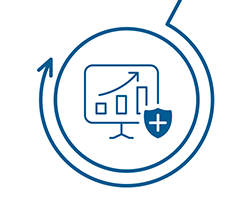Recover

Once the peak of a crisis has passed, WHO remains on the ground to support ministries of health in sustaining their efforts. It is absolutely key not just to ensure that health systems continue to function, but also to identify and digest the lessons learnt through After Action Reviews (AAR) and ultimately to “build back better”.
An evaluation of the emergency response through an AAR is critical to document what worked and what did not work, why events happened as they did and to identify immediate and longer-term corrective actions for future responses. This helps the country or countries at the heart of the event, but also aids other Member States by enabling replication of responses should they suffer a similar experience. WHO’s experience in responding to emergencies has highlighted the important lesson that no one is safe until everyone is safe, and that we need to work collectively to meet common standards and levels of capacity.
The ongoing challenge is to broaden the focus of emergency risk management for health from that of response and recovery to rehabilitation, which is a more proactive approach emphasizing prevention and mitigation, and the development of community and country capacities to provide improved response and recovery.
Resilient health systems based on primary health care at the community level can reduce underlying vulnerability, protect health facilities and services, and scale up the response capacity to meet the wide-ranging health needs in disasters.
The WHO Regional Office for Europe’s activities to achieve resilient health systems include:
- building health system capacities, including family health, mental health, and emergency medical services;
- strengthening early warning systems for communicable diseases and natural disasters;
- developing a health policy framework; and
- acting as a technical focal point for public health programmes.



